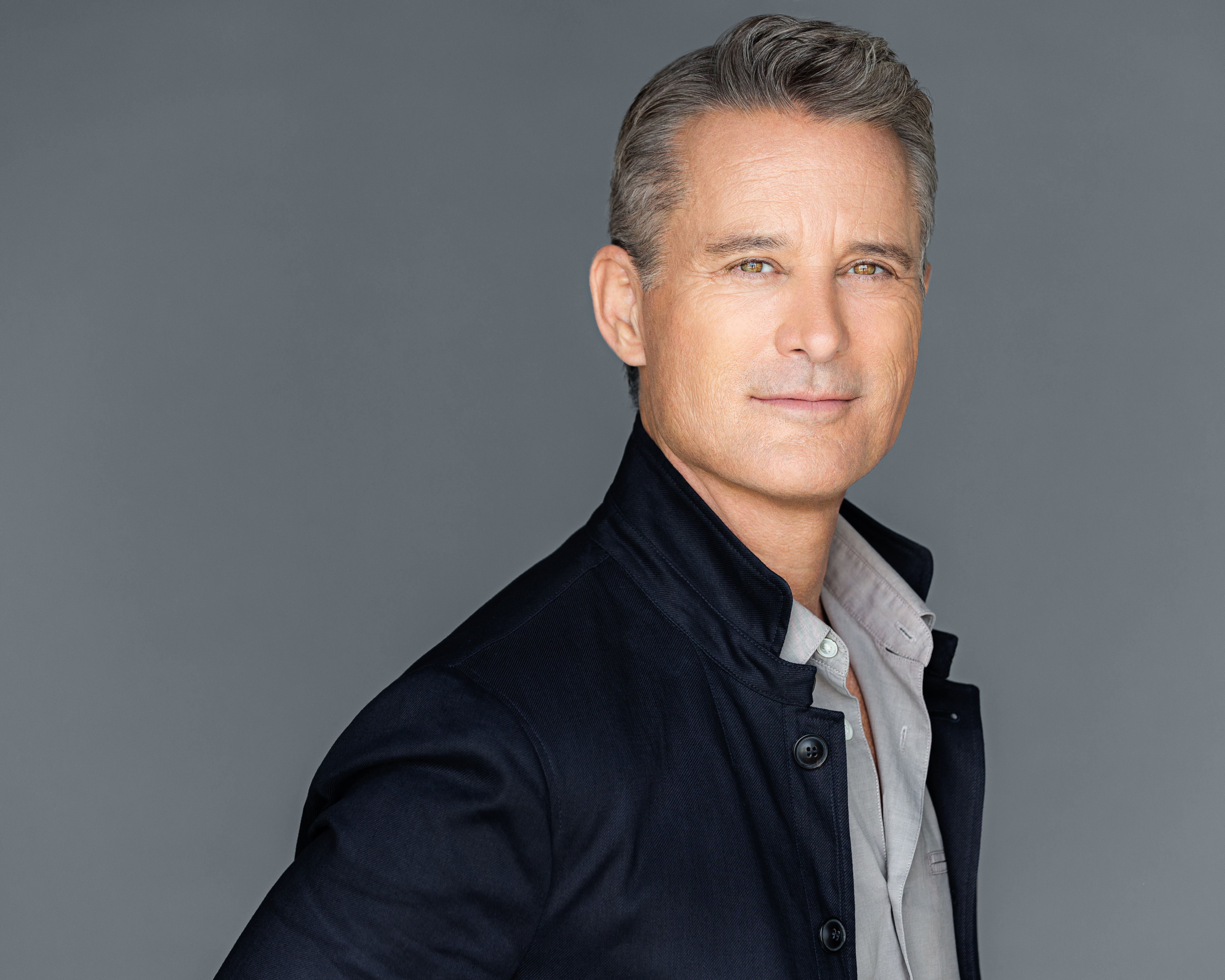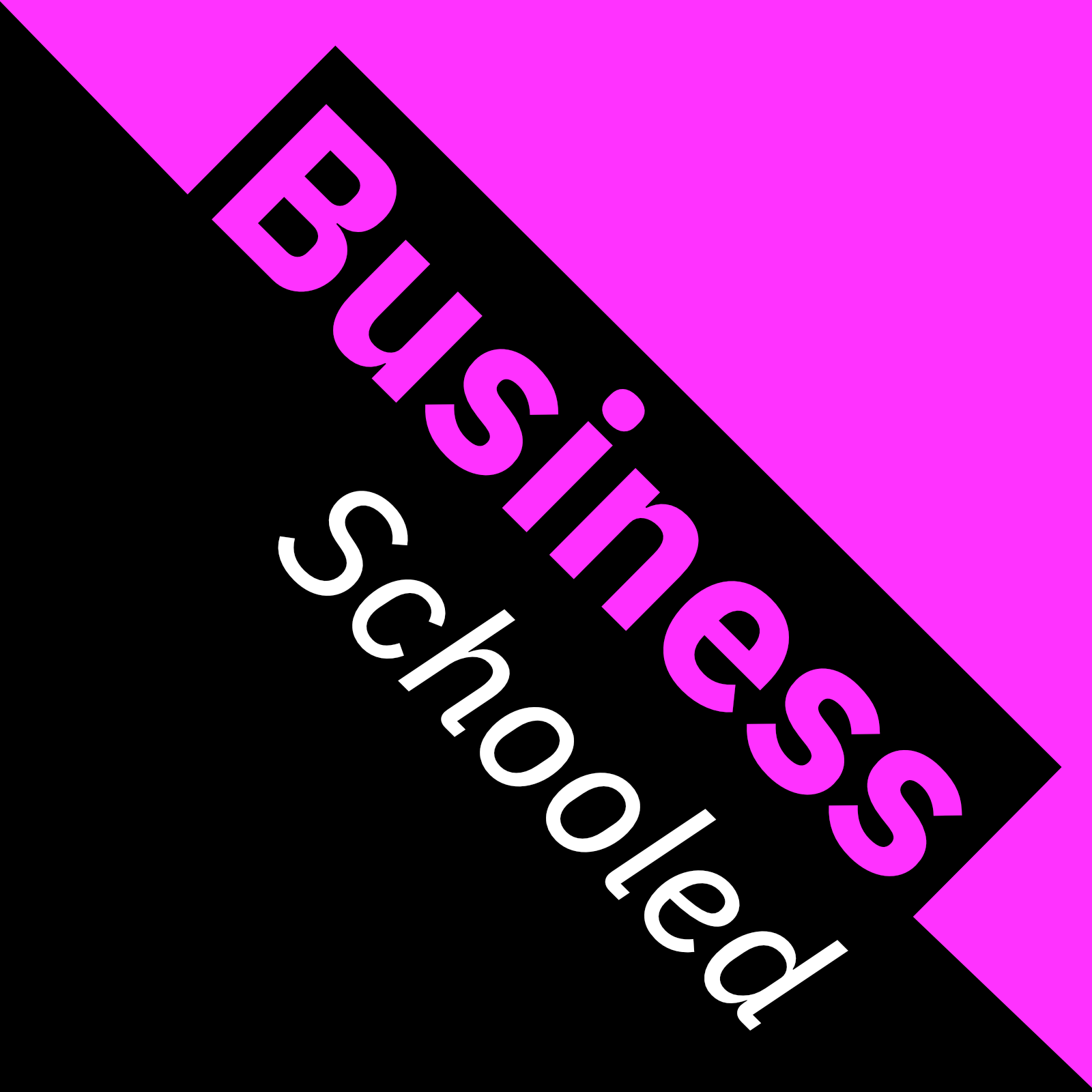Why sustainability can be part of anyone's job with Simon Mainwaring
- 0.5
- 1
- 1.25
- 1.5
- 1.75
- 2
Speaker 1: Business school.
Speaker 2: Business school.
Daryl Pereira: Welcome everybody. This is the Business Schooled podcast where we look at that intersection of what you might be learning in business school or you read in the textbooks, what actually happens in practice. There's a lot of change going on out there. There's a lot of evolution of thoughts, of messages, of innovation happening and we're here to uncover and to unfold that. My name's Daryl Pereira, I'm IBM content lead in the sustainability space, have been working in technology and business for about the best part of the last couple of decades and very, very excited that you do not have to listen to too much of me. But we've got a excellent series of guests that we'll be bringing to you. And to kick us off today, we've got Simon Mainwaring from We First. Welcome Simon.
Simon Mainwaring: Thank you Daryl.
Daryl Pereira: All right, so first up Simon, just tell who are you and what do you do?
Simon Mainwaring: Well, as you can probably tell one my accent, I'm Australian, but I'm based in Los Angeles and I'm the CEO and founder of a company called We First, which is a strategic consultancy that drives growth and impact for purpose- driven brands. I'm also the author of We First and also a new book Lead with We. And someone who like you, is just deeply passionate about exercising our own agency for change because it not only makes a difference to other people's lives, it really enriches your own.
Daryl Pereira: And just a little bit about We First the organization, can you just tell us a little bit about your mission, who you are and where you come from to where you are today?
Simon Mainwaring: Our purpose is to empower and inspire business to lead with we, which simply means that we get all stakeholders to work together in new ways to the benefit of the largest collective, including the planet. And we're committed to that because if anyone looks at the headlines every day, we see we're in a lot of trouble. And we're in trouble in terms of issues that are going to affect all of our lives. And the elephant in the room is business not only because they've caused many of the issues, but also they're uniquely equipped to solve for these issues. And so I think this is the most inspiring, exciting, dynamic, challenging time to be in business. So none of us should be ringing our hands or furrowing our brows. We should be all getting out of bed in the morning and saying, how do we leverage ingenuity and then innovation and creativity in new ways to really leverage the engine of business to unlock solutions at scale. It's an incredibly exciting time.
Daryl Pereira: What a powerful thought. When we think about time and where you've got and how you've got to where you are today, is there anything that you can share and to maybe one or two things that you feel have been pivotal in terms of that have brought you to this point in your career?
Simon Mainwaring: What we first does is we provide the strategy, culture building and impact storytelling for startups, mid- size companies and complex global enterprises. How did we end up there? It happened because I'd spent 18 years in Australia, London, and then all over the US working on large brands as an advertising copywriter, creative director and worldwide creative director on brands like Nike, a Wieden + Kennedy in Portland. And I was worldwide creative director on Motorola at Ogilvy. My last staff job. And what I came away from that experience was really I had a visceral experience in the power of storytelling. How it doesn't matter what your innovation is, what your product, your service is, you've got to tell that story well not only to your customer but also to your employees if you really want to get dynamic growth inside your company. And then in 2008 with a global economic meltdown, I looked around and I thought, this isn't very fair. There's a few people doing very well and everyone else is suffering. And so I thought business needed to do something different. And also story had a powerful role to play in reorienting the role of business. And in full truth, I was a self- important, self- absorbed ad guy caring about winning shiny statues and coming up with the next clever tagline. But what happened with my case was I walked into my kitchen in Los Angeles, and there's five messages on the answering machine, which shows you just how old I am. And the first message was my mother calling from Sydney. And it was the middle of the night that she was calling LA time because she was in Sydney. First message, Simon, wake up, pick up the phone, wake up. Next message, two seconds later, Simon even more agitated, pick up the phone, wake up Simon, pick up the phone. Third message, my sister yelling down the phone because my bedroom was far from the kitchen. So they're trying to wake me up in the bedroom. Simon, wake up, pick up the phone. My mother very upset saying, Simon, pick up the phone, please pick up the phone. And then the last message was Simon dad died. He was calling to say goodbye, call us when you wake up. And those words took on a profundity for me that I didn't even think she intended. Because I hadn't seen my father for five years because I've been running around being a self- important ad guy and I really stepped away from everything and got out of my own way. I didn't retreat to my head for safety. I didn't write lists of what to do next. I went to the funeral, I gave the eulogy, I came back and I really just reflected on what I needed to do next. And in hindsight, I was looking for meaning in my life because I didn't want to just sell cars or sneakers anymore or anything else like that. I wanted to feel like the sweat equity I was putting in every day was going to make things better for others and myself ultimately. And that led for the journey of We First. So I'd love to say it was who I am as a person and I planned in it was strategy and I'm a really good guy. But no, life came along, slapped me on the side of the head and said, you need to go somewhere else.
Daryl Pereira: That's interesting because I think even as a lesson, right, for anybody that it can come from anywhere, right, in terms of this idea, and I know we'll get into more of this discussion, but around this idea of purpose either in what we do or purpose within the corporate world and what businesses do. But it's something, as you say, I know and I've had the opportunity to see some great students that apparently have kind of woken up with that idea fully embedded within them. I know for myself, my journey somewhat like yours, it wasn't that case. But when it does happen and it can happen in many different ways, it's important, right, and it's,
Simon Mainwaring: Yeah, you've got to listen to it. And when you have that experience, whatever it looks like and there's a sort of conscious or unconscious knowing in you that something important is being sort of revealing itself in your life, the most important thing you can do is honor that and listen to it and sit with it and see how that informs how you move forward.
Daryl Pereira: And in terms of that moving forward, were there any things that you'd share in terms of lessons, in terms of then how you thought about, okay, I need to go here. When it comes to even something we talk about purpose, it can be very broad and yet to know exactly which direction or to feel with your background and with your skills and with your desires, where you can have the greatest impact.
Simon Mainwaring: I'll answer that in a few different ways. Firstly, we've all got to recognize that we are enough. Many of us feel like, oh, if until we've done this in our career or we've received this job title or this recognition, somehow we're not qualified to play a role of significance in terms of the result, the output of our lives. And that's not true. Even more so today where there's such a premium on youth. The second thing I would say is often the greatest obstacle is get out of your own way. Too often we just retreat to our heads and we spend so much time there. We're not heart led enough in the way that we show up in business. But when you get that balance right, you're a double threat in a sense. It's incredibly powerful. And then you've got to be extraordinarily resilient. When I first went out there in 2009, 2010, people would ruffle my hair and say, oh my God, it's so cute that there's people like you out there that want to make a difference with business. Never going to happen. FYI, we're here to make money, but good luck with that. And they sort of pat me on the backside and show me the door. And here we are a few years later and companies large and small are being very kind of intentional about how they're communicating the role they play in the world. And there was a lot of knocks, there was a lot of nos. There's been probably every six months I want to throw in the towel and say, I can't do this anymore or it's not working or it's not working the way I wanted to. So you really do need to be resilient. And Here's the hidden gift of purpose in your life, professional or personal and they are integrated obviously, is that when you are just doing something to make money and the going gets tough, there's not a lot to hold onto to give you the fuel, the resilience, the drive, the passion, the putz spirit to just keep going. But when you are fueled by a purpose larger than yourself that aligns with your values, that allows you to have an integrity or an alignment between who you are and what you do on a daily basis, then it gets you through that. And so purpose is a gift that you give yourself because it'll allow you to weather these inevitable storms of entrepreneurship or corporate life without which it can be really, really tough.
Daryl Pereira: No, that's interesting. I've bid something, remember one sitting on a panel I think at Duke University and it was actually somebody that was, he actually worked in big energy and he was some part of a basically fossil fuel industry. But a student had asked him what would you say is the most important characteristic for resilience? And he kind of had this whole heart way felt thing and it was interesting. I know his perspective and mine might be different in terms of the best way of achieving that particular goal. We didn't sit on the same side of the fence, but he still had that same idea that even within his world, he said, if you're just looking for status. If you just think, I want to do this, I want to get reach this certain point, that's not going to be enough. It's not going to get through those tough times.
Simon Mainwaring: It's very, very true. And I mean I have to say I've been very fortunate over the last 12 to 13 years of the journey you kind of, meeting a lot of people have high profiles out there and one of the things that I've learned is that I ran around the world living different versions of success as prescribed or projected on me by other people because I didn't know who I was. I didn't know myself on the presumption that fulfillment is an outside in job, that when I get the job title, the money, the shiny statue, at the inaudible festival, God knows what, then I would be whole, I would feel good about myself in a way that I wasn't up till that point. But what these other leaders by example or literally taught me is that fulfillment is an inside out job. You fulfill yourself, you fill yourself up from the inside out by what you give to others through service. And so it's the same dynamic where you think outside in, I'm going to get filled up, but the polarity is reversed and you have to sort of drive that engine in the right way in the first place and you don't discover it until you make that conscious choice to do it yourself and do it consistently until you start to benefit the rewards as that engine starts to turn over, where you inspire another entrepreneur, you partner with somebody else and you achieve a small little milestone, you get some sort of achievement collaboratively with others and you go, God, I feel good about that. And wow that made a meaningful difference, and boy do I feel different about work. And that's the sort of unseen, unheard, unspoken fuel that drives so many people leading change today, but many never discover it because they're looking from an outside in lens and then they never sort of kickstart the engine in the right way long enough to experience it in a way that makes them want to do more.
Daryl Pereira: Agree and interesting insights. I know you get to see a lot of people in a lot of different, very influential people in different places. In terms of, just to touch on something that you mentioned earlier in terms of the world of business and its relationship to thinking through things like climate action, sustainability, you've been involved in this space for some time. How would you characterize the current state of business?
Simon Mainwaring: Well, I think business way back 15 years ago wasn't even interested in whether we should do this and then it became, well, why should we do it? And then it became how do we do it? And then it became can we benchmark and who's doing it best and so on, whether it's through the lens of CSR, philanthropy, sustainability, ESG, climate, carbon, biodiversity, whatever it might be. But these are just different stages in the maturity of a conversation that has its own life cycle. But I think at a fundamental level, what business needs to realize that this is not about learning something new, this is about remembering what we forgot in that we are innately, chemically hardwired to be connected to each other and the planet we share. We don't come into this world wanting to hate on each other and destroy, decimate the thing that gives us life in the first place. It's almost a learned behavior that's compounded by market forces that we've got to unlearn. But there's some comfort in knowing that whether it be through the lens of indigenous wisdom or behaviors that have sort of got us through difficult periods in history in the past, it's when we do lean into our highest purpose and best selves that we do rise to the occasion. And just look at COVID- 19. In February 2020, if you told me that all major corporations would shut their doors, send their employees home, send meal kits to medical practitioners and first responders, re- engineered their supply chains to meet PPE and ventilators, I would've told you you're crazy. But in a crisis we show up differently and we start to work together in ways that would otherwise be unimaginable. And we are now living in a state of constant crisis. And so in as much as that's so challenging and so devastating to so many lives, I also think it's necessary feedback from the natural world and from the world around us as a function of the impact of business and saying, what we are doing now isn't working. And if you aren't sure, have a look at extreme weather, have a look at the climate crisis, have a look at disparity of wealth and all these different issues that we read about in the headlines every day. And this is really meaningful feedback. And so where businesses today is, it's waking up to this feedback, it's waking up to this call. And the reason it's so exciting to be a business student or beyond today is because all the stakeholders are at the table for the first time. Up till now, we had consumers, we had employees, we had leaders, we may have had suppliers, but now we have the investor class at the table as well saying we will not invest in companies that aren't set up to thrive in the future. And if you don't have all the parts of the engine of capitalism, you can't offer a viable alternative to the prevailing practice of capitalism. You're missing key parts. And now that key driver, the money stuff, the investor class, the pension funds, the publicly traded companies, they're at the table. And so if you're a business student or beyond today, you can lean into this knowing that the market forces will reward you because all stakeholders are appointed in the same direction.
Daryl Pereira: And in terms of that involvement, there's something among the facets you touched on in the book is this idea that sometimes when we think about, okay, either this is something that happens in the CSR department within an organization or maybe it's sometimes even we might think, okay, well there's a strong brand side to this that, yeah, let's leave that to marketing. Where do you see this fitting in terms of the relationship between something as sustainability as it exists for a corporation and the individuals and the functions within it and their involvement?
Simon Mainwaring: Yeah. And I'll speak to a couple of sort of obstacles that someone's passionate about this space they might run into. Firstly, there's a baseline knowledge challenge where unless you work in sustainability, a lot of people in a lot of companies really don't have any handle on what's involved. So there's just that threshold that you've got to get going. Secondly, there's silos that really don't help the process. Marketing is very separated from sustainability and they talk different languages and they're not happy with each other or eating each other's budgets and so on. Then over the course of the last 15 years, the conversations we've had went from the philanthropic leader, to the corporate social responsibility leader, to the sustainability leader, to the marketing leader, to the CEO and CFO. And the reason it's in the C- suite and at the heart of the C- suite now is because voluntary reporting is now being mandated and even more than that, and this is coming hard and fast, they're soon going to be ecocide criminal charges placed against corporate executives that willfully damage the environment because what is costing us are things far more valuable than money. And so whether it's pressure internally from employees, whether it's pressure externally from consumers or the media, whether it's pressure from investors or whether there's that punitive side from regulation and charges now, there's nowhere for an executive to hide. So you can have great confidence as you're going into business knowing that there's been a fundamental shift. We are at an inflection point where everybody leads to change. And one other point I'd make is this, this is not a linear process. It's not like each year we look at what we've done and what worked a little bit better and we're going to incrementally inch our way forward. This is exponential because the issues we're solving for like climate or loss of biodiversity or ocean acidification and all these issues, compounding out in the future and hurtling back towards us in the present, creating this hockey stick of expectation on business so that as you think about your role as somebody who's just getting started in business, know that there's almost an exponential factor to the rewards or engagement or market forces around what you're going to be doing. Because the expectation on business is going to skyrocket because these timelines we're working against are contracting towards us. They're not sitting there statically out in the future waiting for everything to fall apart in 2040 or 2050. It's encroaching on our present at an ever accelerated pace. And so if you are heart led and then you leverage your mind's best practices to bring that to life, it's incredibly powerful that what can happen to your career and how satisfying that will be.
Daryl Pereira: When you talk about careers and the aspect to it, another one aspect you touch on in your book is this idea of collectivized purpose and the role of leadership. And speaking to let's say current or future leaders out there, what would you say is, what is the best role that leadership can play in affecting change?
Simon Mainwaring: Yeah, I think leadership has never been more important for the obvious reasons I've touched on, but it's also never been more in greater need of change. The first book I wrote, We First: How Brands and Consumers Use Social Media to Build a Better World was all about how we leverage these social technologies to reweave the social fabric and actually mobilize collective action to drive good. The new book Lead with We: The Business Revolution That Will Save Our Future is focused on two issues, speed and scale. We are out of time, out of time for the planet, for its species, for our future, for our kids. I've got two daughters, a 23- year- old and a 20- year- old who I love dearly with my wife and I don't want to leave them to this just perilous future. And so instead of individual companies seeing themselves as discreet purpose initiatives, we need to collectivize our purpose because the truth is we got in this mess together. It was your fault Daryl, and it was my fault Simon, because what you threw away or what car you drove or what diet you ate or what bank you put your money in, all of these small decisions aggregated up to the situation we're in today. And not surprisingly, we're only going to get out of it together. And so we need to look at how we can align ourselves within companies and within industries and across sector to work together. And what I call that is the virtuous spiral of collectivized purpose in action. So not a virtuous cycle where you do well by doing good, but a virtuous spiral where, think of it in your mind's eye like a helix or a cyclone where you've got the levels of a cyclone. There's you as an individual choosing to make a choice as on a personal level, then there's you inside a company in a leadership capacity no matter what your role is, you don't have to be the CEO and you can be a leader from any place. Then there's the company culture, then there's the brand community out there in the world. Then there's society at large and all the different sectors. And then there's what I call the transcendent level, which is that symbiotic relationship between humanity and the natural world. And it's about leveraging the synergies between all of those different levels to accelerate and compound our results. And like a helix or a spiral, all those benefits then flow back down to everyone. So I think the future is going to be defined by our ability to collaborate in new ways and much like pre- competitive collaboration, really serve our business by recognizing these challenges as marketplace opportunities in disguise, but then also working with all stakeholders to take those solutions to scale.
Daryl Pereira: And could you give some concrete examples? Let's say if somebody was, let's say if your mid- level finance manager or something like that, is there any way you'd be able to characterize?
Simon Mainwaring: Yeah, I'll give you a couple of example on an individual, but then also kind of a company level. What is the most unlikely position? I mean, think about anyone in a company, could be in payroll, R& D, HR, recruiting. HR, you can be very intentional about the purpose of a company and frame your selection and onboarding process to empower people to self- select where they want to work so that their work is in alignment with their personal purpose and the role they want to play in the world. The reason companies like Patagonia, and I've spoken of Patagonia and others out there and Nike and things like that, the reason they do so well is their purpose is not an affectation, it's not a marketing exercise. It's an authentic externalization or expression of what the sort of cohort of people that work there truly personally care about. It's an authentic expression of what they do. And so that's HR or it might be R& D. And instead of developing any product that gives you the greatest convenience for the cheapest price at the fastest time, you look at the supply chain that goes into that product, you look at the lifecycle of that product. Say you're in finance and you're the most right brain or the headiest financial guy, with spreadsheets and so on. What if you took that rigor and applied it and worked with the sustainability teams to really get clear about benchmarking the metrics and so on so that you can compete out there in the marketplace or work with the CFO to make sure that your company has the financial rigors that can support investors that are putting their money with you because they see that you're committed to sustainability. And I think what people struggle to realize sometimes is that leadership is a choice, an individual choice inside yourself where you just go, am I going to choose to lead or not? And in the context of a threatened future or compromised future, we all need to choose to lead. And just one last point. In terms of an example, a dramatic example of whether anyone can lead or any industry can lead. When I was just finishing my first book, Elon Musk was starting Tesla and he's a polarizing character out there and let's put all that aside, but he took on probably the most indentured and kind of established industry in the US called the auto industry. And there was very aggressive efforts to put him out of business. I mean, if we remember the headlines, it was full on, it was game on. And here we are in 2023 and every single major automaker in the US has committed to phase our combustion engine vehicles and they're falling themselves over their credentials, they're sustainability credentials. So if an industry like that in a country like the US with the might force and resources of that industry can change within a decade, everything's up for grabs. And so don't ever limit yourself by saying, oh, I can't ever change with my company or this industry or at this time. It's not true.
Daryl Pereira: That's fascinating and it's great to hear that anyone from any side of the organization, this isn't something that's just, you need to think about a career path to do this. This is something that's going to be ingrained into every organization. In terms of concrete steps that people can take, are there any that you can share with us?
Simon Mainwaring: Yeah, I think I'd start at the beginning, which is every single one person listening to this should ask themselves, do you choose to lead? And I mean really honestly, are you going to lead? And if so, are you going to make the changes? And by that I mean what car you drive, what diet you have, where you work, what companies you invest in to really look at, to reframe your daily life, not as a function of this world that's outside of you and you can do nothing about it, but rather say every single decision you make is a leverage point in terms of the impact you are having. Mindful that when everybody does that, the aggregate has a huge impact. So are you going to choose to lead genuinely, not as an intellectual idea, but are you really going to show up? Then secondly, what is your personal purpose? And it's not an easy thing to divine because it's hard to read the label from inside the jar, but there's a couple of questions I would ask yourself and there's many more and they're in the book Lead with We. So check it out and all the questions are in there. What is your enemy? By that I mean what motivates you to get out of bed in the morning? What is that thing that you exist to solve for? What annoys you so royally, you talk about it when you're having drinks with friends or next to your significant other in bed, like this thing that you just think should change. Number one, what's your enemy? Number two, what are you the only of? There's only one of you at this time, at this moment in that market and that job. What are you the only of? And then thirdly, when you're at your best, what are you doing? When you are crushing it and you've had one of those days where you're like, I don't know if anybody notice, but I'm the bomb. What are you doing? And when you start to answer questions like these and more, you start to see what your purpose is. You kind of reveals itself from inside the marble because otherwise it just bounces around in your head all day long. And then the third step would be if you have defined your personal purpose inside the company or the startup that you're working in or the company you've started or whatever, bring that to life, share it with the team. Explore ways that you can take very small financially responsible steps to start to execute against it and on the strength of those small wins, do more. That's where I'd start.
Daryl Pereira: All right. Well thank you so much Simon. In terms of if there was one golden takeaway that you would have for the audience out there in terms of how they can find out more on connect with you, what would you say?
Simon Mainwaring: In terms of a singular takeaway, I'd say as a mindset or pointed departure for how you plan the growth of your company or the trajectory of your career, back out of the future rather than build on the past. The past has less to do with the future than ever because these things are changing so quickly. So look five, 10 years down the track and plan your milestones in those terms. And then for the last dozen years we've been doing this work with companies of all sizes to help them drive business growth by scaling their impact. So if you want to kind of benefit from all of those lessons, check out the book Lead with We, it's on Amazon and also leadwithwecourse.com. If you want to dive even deeper, leavewithwecourse.com. It walks you through the process and how you can apply it to your business.
Daryl Pereira: Awesome. Well thank you so much. That's really valuable. Thanks Simon for spending some time with us.
DESCRIPTION
Simon Mainwaring is a brand futurist, speaker, author, podcaster, columnist and founder/CEO of We First, an organization that has been helping businesses realize their sustainability ambitions for over a decade. They focus on getting all stakeholders across the business to work together in new ways to the benefit of the largest collective, including the planet. Simon explains how sustainability can be anyone's role, regardless of the business and what you do.
Your host: Daryl Pereira, IBM Senior Content Strategist
Key takeaways:
Business is evolving to consider climate change now more than ever
Anyone can get involved in sustainability initiatives
Becoming purpose-driven can happen at any time in your career
Today's Host
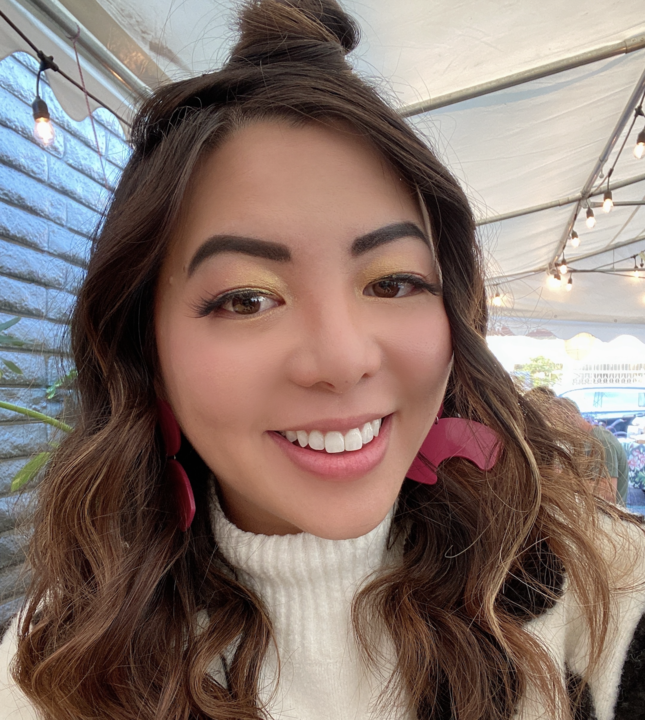
Cristina McComic
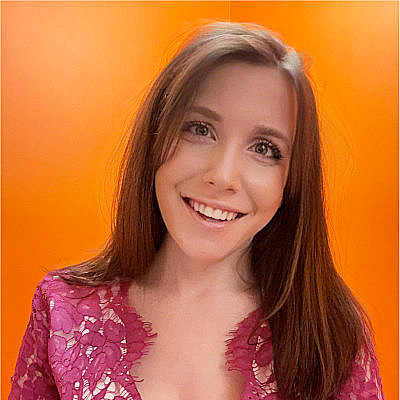
Sam Smitte
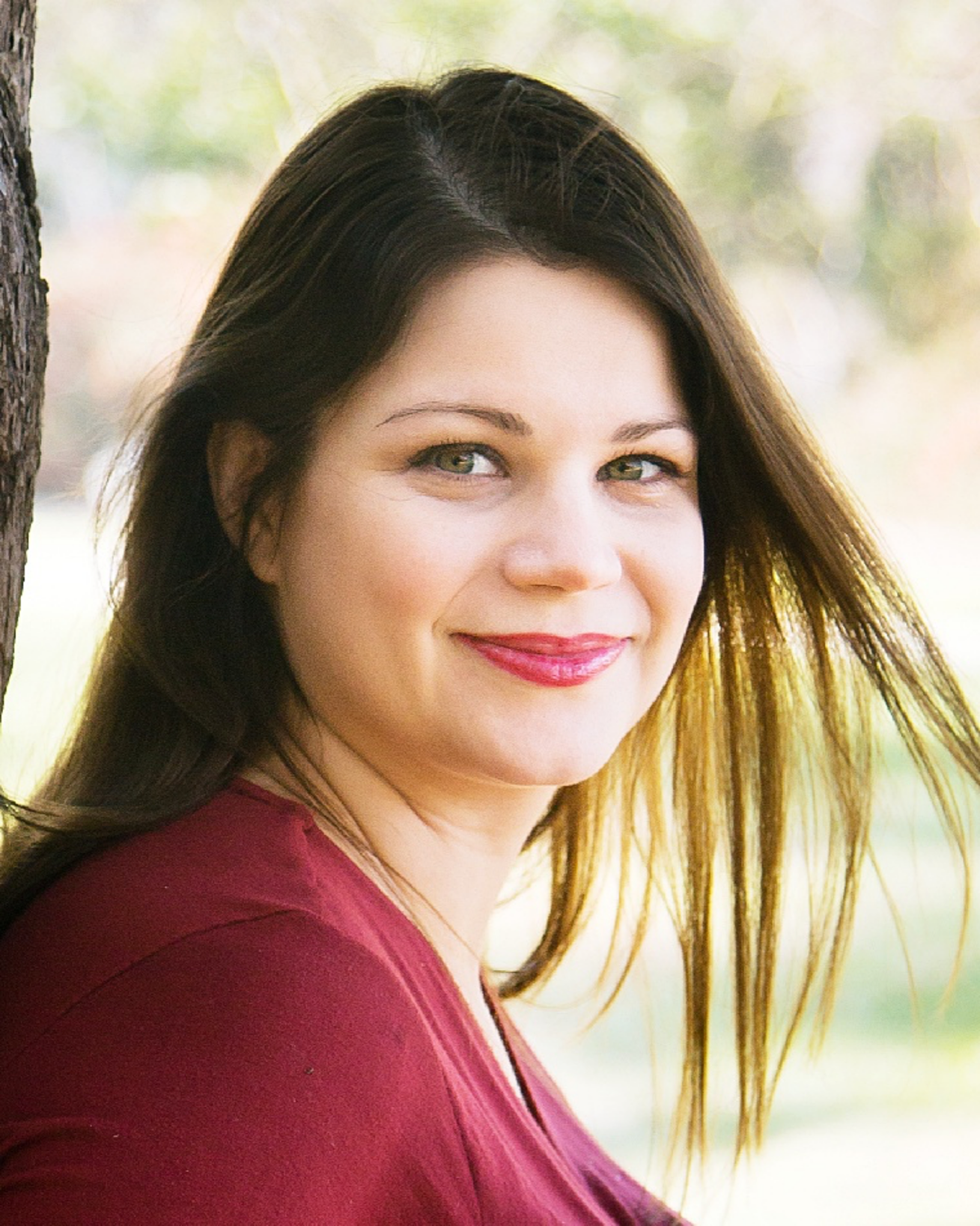
Amanda Downie
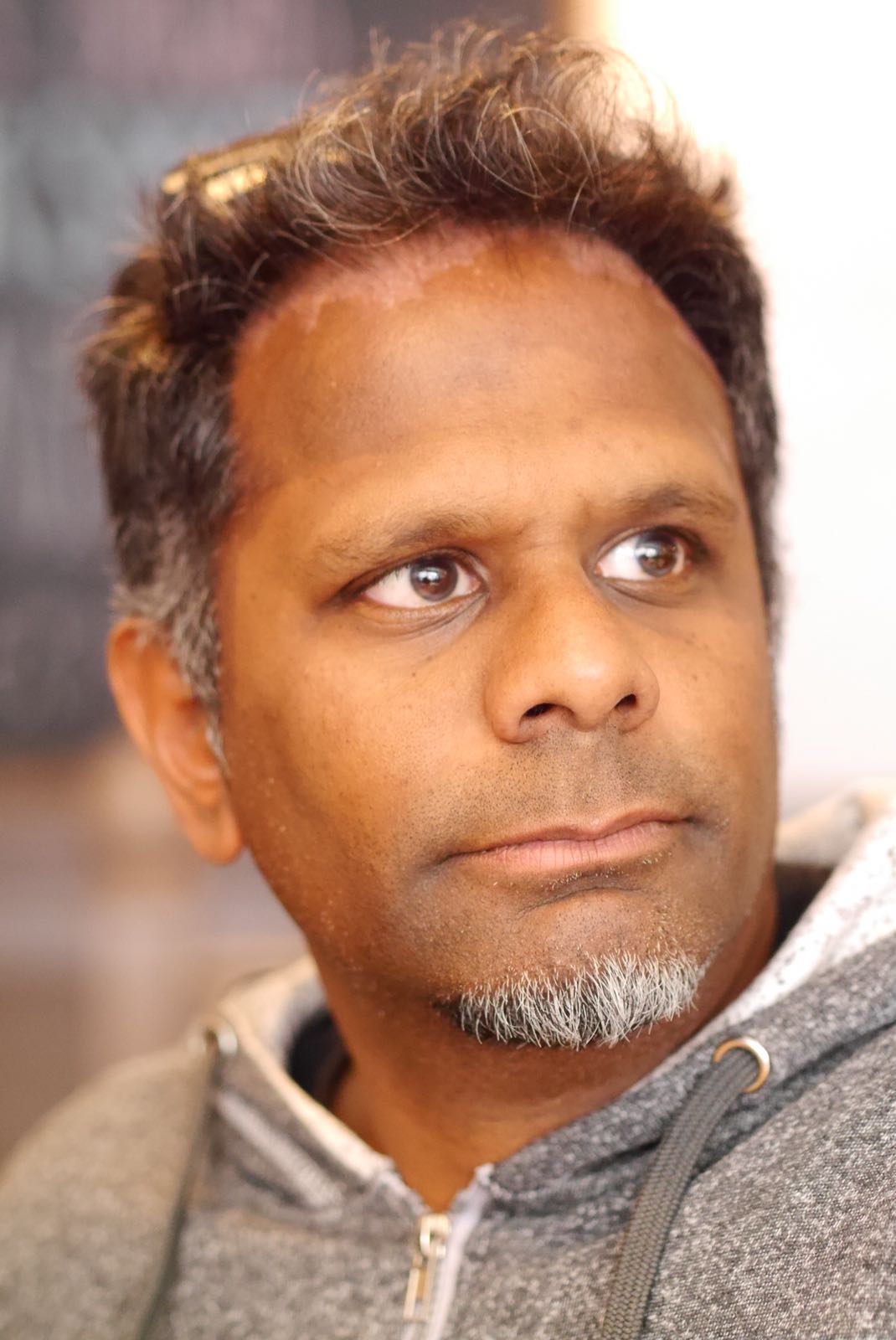
Daryl Pereira
Today's Guests
